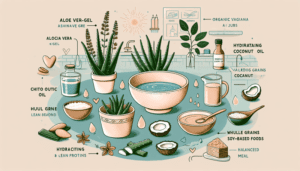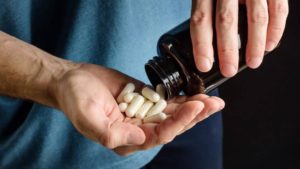How to Naturally Increase Libido in Women in 4 Easy Steps

Let’s discuss the intricacies and methods to naturally increase libido in women. Female libido, a cornerstone of emotional health and personal relationships, embodies a woman’s sexual desire and capacity for sexual pleasure. It’s not just about the physical aspect; it also deeply affects self-esteem, intimacy, and overall quality of life.
When looking for ways to naturally increase libido in women, it’s important to understand the complex mix of factors that contribute to a woman’s sexual vitality. This knowledge will help us find sustainable solutions that work in harmony with the body’s natural processes, rather than relying solely on artificial methods.
In this article, we’ll explore five actionable steps that can help boost female libido naturally. These steps are designed to address both the physical and emotional aspects of sexual wellness:
- Understanding female libido: unraveling its complexities
- Exploring the root causes of decreased sexual desire
- Making lifestyle changes for better sexual health
- Building intimacy through emotional connection
- Discovering the power of natural aphrodisiacs and herbal supplements
By following these steps, you’ll be able to take a holistic approach towards enhancing your libido and enjoying a more fulfilling intimate life.
Step 1: Understanding Female Libido
Table of Contents
Understanding the nature and mechanism of female sexual desire is crucial for developing effective strategies to increase libido. This understanding requires looking at the various factors that influence a woman’s sexual drive, including hormonal changes, stress, relationship dynamics, and more.
The Complexity of Female Sexual Desire
Female sexual desire is more complex than male sexual desire. While men mainly respond to physical stimulation, women’s libido is often influenced by a broader range of emotional, psychological, and physical factors:
- Emotional Factors: A woman’s mood can significantly impact her sexual desire. Feelings of closeness, love, and security often increase libido, while negative emotions such as anger, resentment, or insecurity can decrease it.
- Psychological Factors: Mental health plays a vital role in women’s libido. Conditions like depression, anxiety, or stress can lead to decreased sexual desire.
- Physical Factors: Hormonal changes related to menstrual cycles, pregnancy, or menopause can also affect women’s libido. Fatigue or illness may contribute to reduced sexual desire as well.
It is important to understand these differences between men and women when discussing ways to enhance libido.
The Biological Aspect
Biology also influences female sexuality. Hormones like estrogen and progesterone are essential for female sexual desire. Changes in hormone levels during different stages of life (such as pregnancy or menopause) can impact a woman’s sex drive.
Societal Norms and Cultural Factors
Societal norms and cultural factors also play a role in women’s sexual desire. Societies that encourage open conversations about sexuality generally have healthier attitudes towards sex. On the other hand, societies that shame or suppress female sexuality may unintentionally contribute to decreased sexual desire in women.
It’s clear that a woman’s libido is not solely determined by biology but also by her emotional well-being and the cultural environment she lives in. Recognizing and addressing these factors can help develop effective strategies to enhance female libido.
Step 2: Identifying the Causes of Decreased Libido in Women
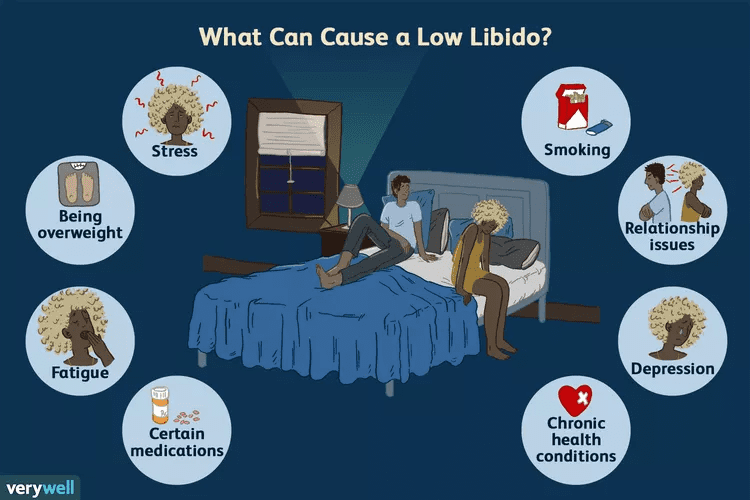
When it comes to a decrease in female libido, various factors come into play that can dampen sexual desire. Understanding these elements is crucial for addressing and managing them effectively.
Hormonal Influences on Libido
Pregnancy and Breastfeeding
Hormonal Influences on Libido: The Role of Pregnancy and Breastfeeding
Women’s bodies go through significant changes during pregnancy and breastfeeding, all of which are largely driven by hormones. These hormonal fluctuations can have a profound impact on a woman’s sexual desire or libido.
Pregnancy: During pregnancy, the body experiences a surge in hormones such as progesterone and estrogen. This hormonal rollercoaster can lead to various physical and emotional changes, affecting a woman’s interest in sex.
➞ Physical Changes: Pregnancy brings about various physical changes like nausea, fatigue, and breast tenderness, which might reduce sexual desire.
➞ Emotional Changes: The anticipation and anxiety associated with impending motherhood can also affect a woman’s mood, potentially leading to decreased libido.
Breastfeeding: Post childbirth, breastfeeding mothers experience an increase in prolactin — the milk-producing hormone. High levels of prolactin can suppress ovulation and lower estrogen levels, often leading to a decrease in sexual desire.
➞ Physical Changes: Common postpartum symptoms like fatigue or pain during intercourse (dyspareunia) due to healing from childbirth can also contribute to reduced libido.
➞ Emotional Changes: The demands of caring for a newborn combined with sleep deprivation can leave little energy or time for sexual activity.
It’s important to note that every woman’s experience with pregnancy and breastfeeding is unique. Some may experience increased libido due to the hormonal changes, while others may notice a decrease. Understanding these potential influences can help women navigate these life stages more effectively without unnecessary worry or guilt about their fluctuating libido.
Menopause
The Impact of Menopause on Sexual Desire
Menopause: A Significant Biological Process
Menopause is a natural biological process that signifies the end of a woman’s reproductive years. This phase is not just a single event, but a transition period that typically occurs in women during their late 40s to early 50s. It’s important to note that menopause is a completely natural part of aging, and not a disease or disorder.
Symptoms Accompanying Menopause
This transition often carries with it a myriad of symptoms, each varying in intensity and duration from woman to woman. Some of the most common symptoms include:
- Hot flashes
- Night sweats
- Sleep disturbances
- Mood changes
Among these, one symptom that significantly impacts many women is a decrease in sexual desire or libido.
Decrease in Libido During Menopause
A decrease in libido, or sexual desire, is often experienced by women during menopause. This can be attributed to several interconnected factors:
- Hormonal Changes: As women approach menopause, their bodies produce less estrogen and progesterone – two hormones necessary for maintaining sexual desire and response.
- Physical Discomfort: Due to decreased levels of estrogen, women may experience vaginal dryness which can make intercourse uncomfortable or even painful, thereby reducing sexual desire.
- Emotional Factors: The physical changes accompanied by menopause may lead to psychological distress or self-esteem issues which could lower interest in sexual activity.
It’s essential for women going through menopause to understand that these changes are normal parts of the transition. Professional help and support are available for those who find these changes particularly challenging or distressing. There are various treatments options available – like hormone therapy and lifestyle modifications – that can alleviate these symptoms and improve quality of life during this significant life stage.
Reduced Estrogen Production
A pivotal factor contributing to this decline is the reduction in estrogen production. Estrogen is a hormone that plays a vital role in maintaining not just reproductive health, but also overall well-being. During menopause, the body’s production of this hormone significantly decreases, leading to several physiological changes.
Decreased Libido Due to Low Estrogen Levels
One key consequence of reduced estrogen levels is decreased libido. Lower estrogen levels can directly affect a woman’s interest in and enthusiasm for sexual activity. It’s essential to understand this connection to be prepared for these changes and manage them effectively.
Vaginal Dryness
Estrogen also maintains vaginal health by keeping tissues lubricated and elastic. A drop in estrogen levels can lead to vaginal dryness, making intercourse uncomfortable or even painful. This discomfort can understandably deter women from engaging in sexual activity.
Hot Flashes
Hot flashes are another common symptom of menopause linked to fluctuating hormones. These sudden feelings of warmth can cause discomfort and disrupt sleep, further contributing to decreased libido by affecting overall mood and energy levels.
Understanding the Connection
Recognizing the relationship between menopause and decreased libido can help in managing this transition better. It’s crucial not only to acknowledge these physiological changes but also to seek professional advice for managing symptoms effectively.
While menopause does bring about significant changes, it doesn’t mean an end to a satisfying sex life. With the right approaches such as lifestyle modifications, hormonal treatments, or counseling, women can continue to enjoy intimacy during this new phase of life.
Psychological Components Affecting Desire
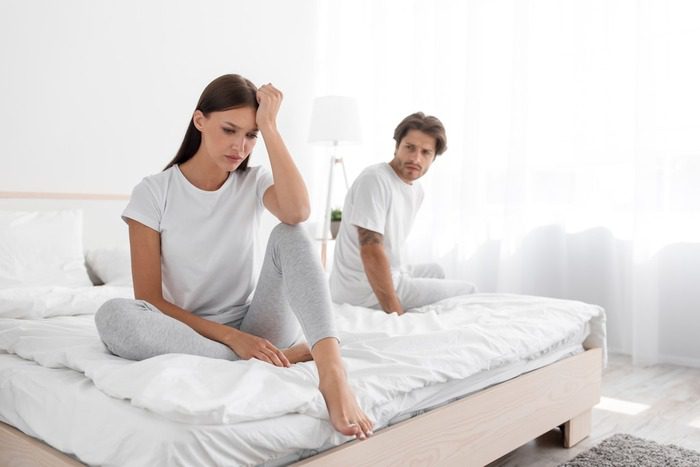
Stress Disrupts the Body to Naturally Increase Libido in Women
Impact of High Stress Levels on Sexual Desire
High levels of stress can often lead to a decrease in sexual desire. This happens as the body redirects its energy and resources towards managing the perceived threat, leaving less room for sexual activity. Let’s delve into this connection further.
The Body’s Response to Stress
When we experience stress, our bodies go into what is known as ‘fight or flight’ mode. This response activates the adrenal glands to release hormones like cortisol and adrenaline. These hormones help us manage stressful situations by:
- Increasing our heart rate
- Boosting our energy supplies
- Sharpening our senses
While these responses are beneficial in handling immediate threats, constant exposure to these hormones can have detrimental effects on various aspects of our health, including sexual desire.
Stress and Sexual Desire: The Connection
Prolonged stress can lead to chronic elevation of cortisol levels in the body. Cortisol is known to suppress the body’s sex hormones, leading to decreased libido. Moreover, chronic stress can also cause fatigue and depression, further reducing interest in sex.
Managing Stress for Improved Libido
Reducing stress and managing it effectively can help improve sexual desire. Some methods include:
- Regular physical exercise: Exercise helps reduce cortisol levels and boosts endorphin production, improving mood and energy levels.
- Mindfulness practices: Techniques such as yoga, meditation, and deep-breathing exercises can help calm the mind and reduce stress.
- Balanced diet: Consuming nutrient-rich foods can enhance overall health and resilience to stress.
- Adequate sleep: Quality sleep allows the body to rest and recover from daily stresses.
Remember that everyone’s experience with stress is different, so what works best for you might be different from what works for others. Always consult with a healthcare provider if you’re struggling with chronic stress and its effects on your libido.
Anxiety and Depression
Impact of Mental Health on Sexual Desire
Two prevalent mental health issues, anxiety and depression, can substantially impact your libido by altering your mood and energy levels.
- Anxiety: When you’re constantly in a state of worry or fear, it’s hard to feel relaxed or interested in sexual activity. Anxiety can make you feel exhausted, distracted, or tense, all of which can detract from sexual desire.“Anxiety can divert the mind from pleasurable activities like sex and reroute its focus towards worries and potential threats.”
- Depression: Unlike normal sadness or grief, depression is persistent—it doesn’t just go away. If you’re depressed, you may lose interest in things that you used to enjoy, like sex.“Depression often results in fatigue and lethargy, making sexual activity seem like a daunting task rather than an enjoyable experience.”
Managing Mental Health can Help to Naturally Increase Libido in Women
Dealing with these mental health issues effectively can help revive your sexual desire. Here are a few strategies:
- Psychotherapy: Cognitive behavioral therapy (CBT), for example, has been shown to be very effective in treating anxiety and depression. It involves talking with a mental health professional to learn strategies for managing these conditions.
- Medication: Antidepressants and anti-anxiety medications can help manage symptoms of anxiety and depression. However, some of these medications can also lower libido as a side effect.
- Lifestyle Changes: Regular exercise, a healthy diet, sufficient sleep, and reduced alcohol consumption can all help improve your mood and energy levels.
As with stress management techniques, what works best will vary between individuals. Always consult with a healthcare provider if you’re dealing with persistent anxiety or depression that’s affecting your libido.
Relationship Dynamics
Discrepancies in Sexual Needs and Unresolved Conflicts
The dynamics of your relationship significantly affect your sexual desire. An essential aspect of these dynamics is the level of understanding and compatibility between you and your partner, particularly concerning sexual needs.
Sexual needs can vary greatly among individuals. You and your partner may have different levels of libido or varying preferences for sexual activities. This discrepancy, if not addressed properly, can lead to feelings of dissatisfaction or neglect, which in turn may lower your interest in intimacy.
Key Points:
- Communication: Openly discussing your desires, preferences, and concerns with your partner can help bridge any gaps in understanding. This can foster a sense of intimacy and mutual respect.
- Compromise: Finding common ground is key. This might involve scheduling regular intimate time or exploring new activities that both partners find enjoyable.
Unresolved Conflicts in the Relationship
Conflicts or disputes with your partner that remain unresolved can also contribute to a decreased interest in intimacy. These conflicts might stem from various issues such as financial stress, disagreements on major decisions, or interpersonal issues like jealousy or control issues.
How to Navigate Unresolved Conflicts:
- Open Dialogue: Addressing conflicts directly through open and respectful conversation can help resolve these issues.
- Professional Help: In some cases, seeking help from a relationship counselor can provide valuable insights and techniques to resolve conflicts.
In sum, maintaining a healthy relationship involves addressing discrepancies in sexual needs and resolving conflicts effectively. This fosters an environment where both partners feel heard, understood, and appreciated, ultimately enhancing sexual desire. Remember that navigating these intricacies requires patience, understanding, and open communication. A professional’s guidance may be beneficial for complex situations.
Physical and Medical Factors Affecting Levels of Libido in Women
Impact of Certain Medications on Sexual Desire
Many pharmaceutical drugs, particularly antidepressants and contraceptives, can have side effects that potentially lead to a decreased sexual drive or ‘libido’. It’s important to understand these impacts as part of your overall health management.
Antidepressants
Antidepressants are primarily used to manage mental health conditions such as depression and anxiety disorders. However, they can inadvertently affect sexual desire due to their impact on brain chemistry.
- Selective serotonin reuptake inhibitors (SSRIs) like Prozac and Zoloft, increase the level of serotonin in the brain. While this helps to elevate mood, it can dampen sexual interest.
- Tricyclic antidepressants (TCAs) such as Elavil, also have similar side effects on libido due to their effect on neurotransmitters.
Contraceptives
Contraceptive medications, especially hormonal ones like birth control pills, can also affect sexual desire levels. They work by altering the hormone levels in a woman’s body which can indirectly influence libido.
- Combined oral contraceptives (COCs): These pills contain both estrogen and progestin. While they are effective at preventing pregnancy, some women may experience a decrease in libido as a side effect.
- Progestin-only pills (POPs): Also known as the ‘mini-pill’, they contain only progestin. Similar to COCs, they could potentially lower sexual desire in some women.
It’s crucial that you discuss any concerns about medication-related changes in libido with your healthcare provider. They can offer solutions such as adjusting dosages or suggesting alternative treatments. Please remember that everyone’s body responds differently to medications, so what affects one person may not affect another.
Chronic Health Conditions and Their Impact on Sexual Function
Certain chronic health conditions like diabetes, thyroid disorders, and other long-term illnesses can significantly interfere with sexual function and overall libido. These conditions exert their impact through various pathways, leading to changes in sexual desire and performance.
- Diabetes: This is a condition characterized by high blood sugar levels, which can affect both men and women’s sexual function. In men, diabetes can lead to erectile dysfunction due to the damage it causes to blood vessels and nerves. For women, it can lead to changes in sensation, decreased sexual response, and vaginal dryness. Furthermore, the fatigue associated with poorly controlled diabetes can lower sex drive in both genders.
- Thyroid Disorders: The thyroid gland regulates many of your body’s essential functions, including metabolism and body temperature. It also plays a crucial role in your sex drive. Both overactive (hyperthyroidism) and underactive (hypothyroidism) conditions can cause low libido. Hyperthyroidism may lead to fatigue, weight loss, and increased heart rate; these symptoms can reduce sexual desire indirectly. Hypothyroidism might cause fatigue, depression, or weight gain that could also decrease libido.
- Other Chronic Illnesses: Chronic illnesses such as cardiovascular disease, cancer, chronic obstructive pulmonary disease (COPD), chronic pain conditions, and others can all have a negative impact on sexual function due to physical discomfort or psychological stress associated with the illness.
As always, if you’re experiencing a decrease in libido or other changes in your sexual function related to a chronic illness or its treatment, it’s important to speak openly with your healthcare provider. There are many strategies and treatments available to help manage these issues, from medication adjustments to the introduction of supportive therapies or lifestyle changes.
Lifestyle Choices: Impact of Smoking and Alcohol on Libido
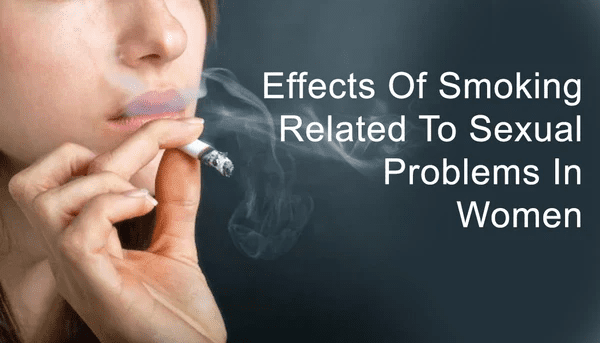
According to numerous studies, both smoking and excessive alcohol consumption make significant contributions to the reduction in sexual desire. This decline can be attributed to their overall impact on an individual’s health.
1. The Effect of Smoking on Libido
Smoking has been known to affect one’s libido in several ways:
- Decreased Blood Flow: Nicotine, a key component of cigarettes, can constrict blood vessels, leading to reduced blood flow. As adequate blood circulation is crucial for sexual arousal in both men and women, this constriction can potentially decrease sexual desire.
- Hormonal Imbalance: Smoking can also cause hormonal imbalances. It can alter the levels of sex hormones like estrogen and testosterone, which play a pivotal role in regulating sexual drive.
2. The Impact of Excessive Alcohol Consumption on Sexual Desire
Excessive alcohol consumption can also have detrimental effects on one’s libido:
- Alcohol as a Depressant: Despite its reputation as a ‘social lubricant’, alcohol is a depressant. It can dampen mood, decrease sexual desire and make it harder for men to maintain erections or reach orgasm.
- Long-Term Health Risks: Chronic heavy drinking can lead to liver damage, nerve damage and other conditions that can lead to a drop in testosterone levels and subsequently decrease libido.
As we dive deeper into understanding the effects of lifestyle choices on sexual health, it becomes clear that habits such as smoking and excessive alcohol consumption could potentially tamper with your sexual desires due to their harmful impacts on overall health. Awareness is key – understanding these impacts could encourage healthier choices that contribute to a better sexual health.
Step 3: Embracing a Healthy Lifestyle Can Help Increase Libido in Women and Enhance Their Sexual Vitality
A journey towards enhancing sexual vitality begins with adopting a healthier lifestyle. This is one of the most effective methods to naturally increase libido in women. It is worth noting that your body’s well-being directly impacts your sexual health, and therefore, focusing on overall health can lead to improved libido.
Physical Activity: The Game Changer
Regular exercise plays a significant role in boosting sexual vitality. Whether it’s running, yoga, or weightlifting, physical activity can:
- Increase blood flow to the pelvic area, potentially enhancing sexual arousal
- Improve mood and energy levels
- Boost self-confidence by improving body image
Thus, being active is not just about keeping your heart healthy and maintaining an optimal weight, but it also helps in enhancing your libido.
The Power of a Balanced Diet
What you consume has a direct impact on your libido. Eating a balanced diet rich in fruits, vegetables, whole grains, and lean proteins can improve overall health and potentially boost libido. Here are few dietary considerations:
- Fruits and Vegetables: Rich in vitamins and antioxidants, they boost immunity and enhance blood flow.
- Whole Grains: These provide sustained energy by releasing glucose slowly into your bloodstream.
- Lean Proteins: Food items such as chicken, turkey, fish, eggs provide essential amino acids which are building blocks for body functions including sexual response.
Incorporating these food items into your diet will not only enhance your overall health but also support the natural processes that stimulate libido.
A Balanced Lifestyle: The Foundation of Healthy Libido Levels
Maintaining a balanced lifestyle is the foundation of healthy libido levels. This involves adequate sleep, regular exercise, a balanced diet, effective stress management, and incorporating the aforementioned strategies. To put it into perspective, imagine your body as a complex machine – if one part is not functioning properly, the whole system can be affected. Likewise, maintaining a balanced lifestyle supports all bodily functions, including those related to sexual desire.
Through the adoption of these strategies, you are one step closer to experiencing enhanced sexual vitality.
Step 4: Using Natural Aphrodisiacs and Herbal Remedies
Adding certain herbs and aphrodisiac foods to your meals can be an effective way to naturally boost libido in women. These natural remedies have been used for centuries in different cultures to improve sexual desire and arousal.
1. Maca, Ginseng, and Tribulus Terrestris
These three herbs have long been used to increase libido in women. Maca is a plant from Peru known for its energizing properties. It can be consumed as a food or taken as a supplement. Ginseng, especially the Korean red variety, is known for its potential effects on sexual arousal. Tribulus Terrestris, a plant found in the Mediterranean region, may help enhance sexual function and desire.
2. Ginkgo Biloba, Damiana, and Horny Goat Weed
These natural aphrodisiacs are believed to heighten sexual desire and arousal. Ginkgo Biloba is a tree native to China, and its leaves are often used in traditional medicine for various health benefits, including improved blood flow. This increased circulation might contribute to better sexual response.
Damiana is a small shrub found in Central America known for its aphrodisiac properties. It’s thought to stimulate sexual desire by boosting energy levels. Horny Goat Weed, despite its unusual name, has been used in Chinese medicine for centuries due to its potential libido-enhancing effects.
3. Fenugreek, Ashwagandha, and Black Cohosh
These herbal remedies may also help boost libido and improve sexual function in women. Fenugreek is a common spice that could potentially increase sex drive by promoting the production of sex hormones. Ashwagandha, an adaptogenic herb widely used in Ayurvedic medicine, may reduce stress — a common libido killer. Lastly, Black Cohosh, a plant native to North America, has been used to relieve symptoms of menopause, including decreased libido.
Including these herbs and aphrodisiac foods in your diet can provide a natural boost and increase libido in women. However, it’s important to remember that while these remedies might be beneficial, they’re not a guaranteed solution for everyone. The effectiveness of these natural remedies can vary greatly from person to person due to individual biochemistry and overall health status.
Using Aphrodisiac Foods, Herbs, and Supplements to Increase Libido in Women
In addition to incorporating specific aphrodisiac foods and herbs into your meals, you may also find it helpful to include certain supplements in your daily routine. Here are some examples:
- Dark Chocolate: Known for its ability to increase serotonin levels in the brain, which can elevate mood and potentially boost sexual desire.
- Oysters: Rich in zinc, which is essential for hormone production and could potentially enhance libido.
- Red Wine: Contains resveratrol, an antioxidant that can improve blood flow and circulation, potentially enhancing arousal and response.
It’s always a good idea to consult with a healthcare provider before starting any new supplement regimen or making significant changes to your diet. They can offer personalized advice based on your specific health needs and circumstances.
The power of nature is vast and potent when it comes to addressing issues such as low libido. The key lies in finding the right balance and combination that works for you.
Role of Libido Enhancers in Women’s Sexuality
Libido enhancers hold a significant place in women’s sexuality. They can help increase sexual desire and promote arousal. However, it’s essential to understand that these should not be the only go-to solution for low libido. Female libido enhancers can complement lifestyle changes, stress management techniques, and improved communication with a partner.
Caution with Libido-Enhancing Products
While there are numerous female libido enhancers available in the market, it’s crucial to use them with caution. Always consult with a healthcare professional before starting any new supplement regimen.
Two Popular Female Libido Enhancer Products are Vigorelle and Provestra:
Vigorelle: An Overview

Vigorelle is a topical cream applied directly to the clitoral area. It claims to enhance sensitivity and arousal. However, some users have reported minor side effects like itching or burning sensations.
Vigorelle is a libido-enhancing product designed specifically for women. It’s a topical cream that you apply directly to the clitoral area. The primary purpose of Vigorelle is to help stimulate sexual desire and enhance sensitivity during intimate activities.
How Does Vigorelle Work?
Vigorelle works by delivering stimulating natural ingredients directly to the region where it’s applied. As a result, it aims to:
– Increase blood flow
– Enhance sensitivity
– Stimulate arousal
These effects can contribute to greater sexual satisfaction and heightened enjoyment during sexual activities.
User Experiences with Vigorelle
While each person’s experience with Vigorelle may vary, it’s worth noting that some users have reported minor side effects. These include:
– _Itching_
– _Burning sensations_
However, these side effects tend to be mild and do not persist. Despite these potential side effects, many users maintain that the benefits outweigh any temporary discomfort.
Advice for Using Vigorelle
Before using Vigorelle:
1. Do a patch test: Before applying Vigorelee liberally, it’s advised to perform a patch test on a small area of skin first. This will help ensure you don’t experience an adverse reaction.
2. Follow the instructions: Be sure to follow the product instructions carefully for best results.
3. Consult your doctor: If you have any concerns about potential side effects or if you’re currently taking other medications, consult with your healthcare provider before using this product.
The Takeaway: Vigorelle is one tool among many available options designed to enhance women’s sexual experiences. It provides direct stimulation through its topical application and can potentially heighten sexual enjoyment. However, as with all products, it’s essential to use it responsibly and consider any potential side effects.
Provestra: Balancing Hormones and Increasing Libido in Women
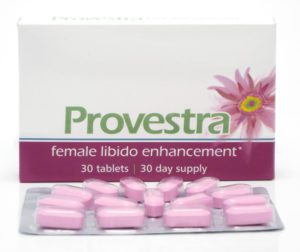
Among the myriad of sexual health products on the market, Provestra stands out as a unique offering. It’s an oral supplement that primarily serves two functions – balancing your hormones and increasing your sexual desire.
- Hormone Balancing: Hormones play a pivotal role in our overall wellbeing, and any imbalance can lead to various health issues, including a decrease in libido. Provestra is designed to help restore this balance. By doing so, it helps alleviate symptoms like mood swings and irregular periods, which can often be hurdles to a healthy sex life.
- Libido Enhancing: The supplement also works towards enhancing your sexual desire. It’s formulated with a blend of herbs and nutrients known for their aphrodisiac properties. The ingredients work synergistically to stimulate your body’s natural response to sexual stimuli, potentially leading to increased arousal and more satisfying sexual experiences.
Note:* Remember, individual results may vary.
Although many women have found Provestra effective in improving their sexual health, it’s important to note that responses can vary significantly from person to person. Some have reported noticeable changes in their libido, experiencing heightened desire and improved sexual satisfaction. On the other hand, others have noted minimal changes in their libido after taking the supplement.
The disparity in user experiences can be attributed to several factors including individual body chemistry, the severity of hormonal imbalance, lifestyle choices, and overall health condition.
Before starting any new health supplement like Provestra:
- Always consult with a healthcare professional.
- Understand that supplements are not a ‘quick fix’ but part of a holistic approach to good health.
- Pay attention to any potential side effects or adverse reactions.
The Takeaway: While Provestra offers the potential for hormone balance and increased sexual desire, it’s essential to approach its use with a realistic expectation and in consultation with a healthcare professional.
Both products can be purchased online through their respective websites. Be cautious about counterfeit products marketed under similar names, as they may not only be ineffective but also potentially harmful.
Remember, the journey to enhanced libido is not a sprint but a marathon. It involves making long-term changes that positively impact your overall health and well-being. This holistic approach not only increases libido but also leads to a happier and healthier life.
How to Naturally Increase Libido in Women: The Final Verdict
Embracing natural methods to increase libido is a great way to improve female sexual desire. Making lifestyle changes, exercising regularly, and eating a healthy diet are important steps that can help boost libido and enhance sexual satisfaction for women.
Before trying any new strategies to naturally increase libido in women, it’s important to consult with a healthcare professional. They can provide guidance and ensure that the methods chosen are suitable for individual health conditions and situations.
To summarize, here are the five key steps for naturally enhancing libido:
- Understand that female libido is complex and influenced by emotions, thoughts, and physical factors.
- Identify possible reasons for low libido, such as hormonal changes or stress.
- Adopt a healthy lifestyle to support overall sexual health.
- Build intimacy through open communication and emotional connection in your sexual relationship.
- Explore natural aphrodisiacs and herbal remedies to see if they can help boost sexual desire and function.
By embracing these steps and adapting them to your own needs and preferences, you can prioritize your sexual well-being as an important part of your overall health.
FAQs (Frequently Asked Questions)
What is the significance of female libido in a woman’s life?
Female libido plays a crucial role in a woman’s overall well-being and satisfaction. It can impact her emotional, psychological, and physical health, as well as her intimate relationships.
What are the differences between men and women concerning sexual desire?
Women often experience a more complex interplay of emotional, psychological, and physical factors when it comes to sexual desire, as compared to men. Understanding these differences can help in developing targeted methods which have the possibility to naturally increase libido in women at all times, at least while they are still in their prime.
What are the common causes of decreased libido in women?
Hormonal changes, psychological factors like stress and relationship issues, certain medications, health conditions, and lifestyle factors can contribute to decreased libido in women. It’s important to address these factors to understand and overcome diminished sexual desire.
How can a healthy lifestyle enhance sexual vitality in women?
Regular exercise, a balanced diet, stress reduction through relaxation techniques, and overall well-being are essential for supporting healthy libido levels. These lifestyle choices can positively impact sexual arousal and desire in women.
What is the role of open communication and emotional intimacy in sustaining a fulfilling sexual relationship?
Open communication and emotional intimacy play a crucial role in nurturing intimacy and sustaining a fulfilling sexual relationship. These factors are essential for creating a strong emotional connection that enhances sexual desire.
What is the power of a holistic approach to female libido enhancement?
A holistic approach considers the physical, emotional, and psychological factors that impact a woman’s sexual desire. It encourages lifestyle changes, stress management techniques, and communication with a partner rather than relying solely on female libido enhancers.


